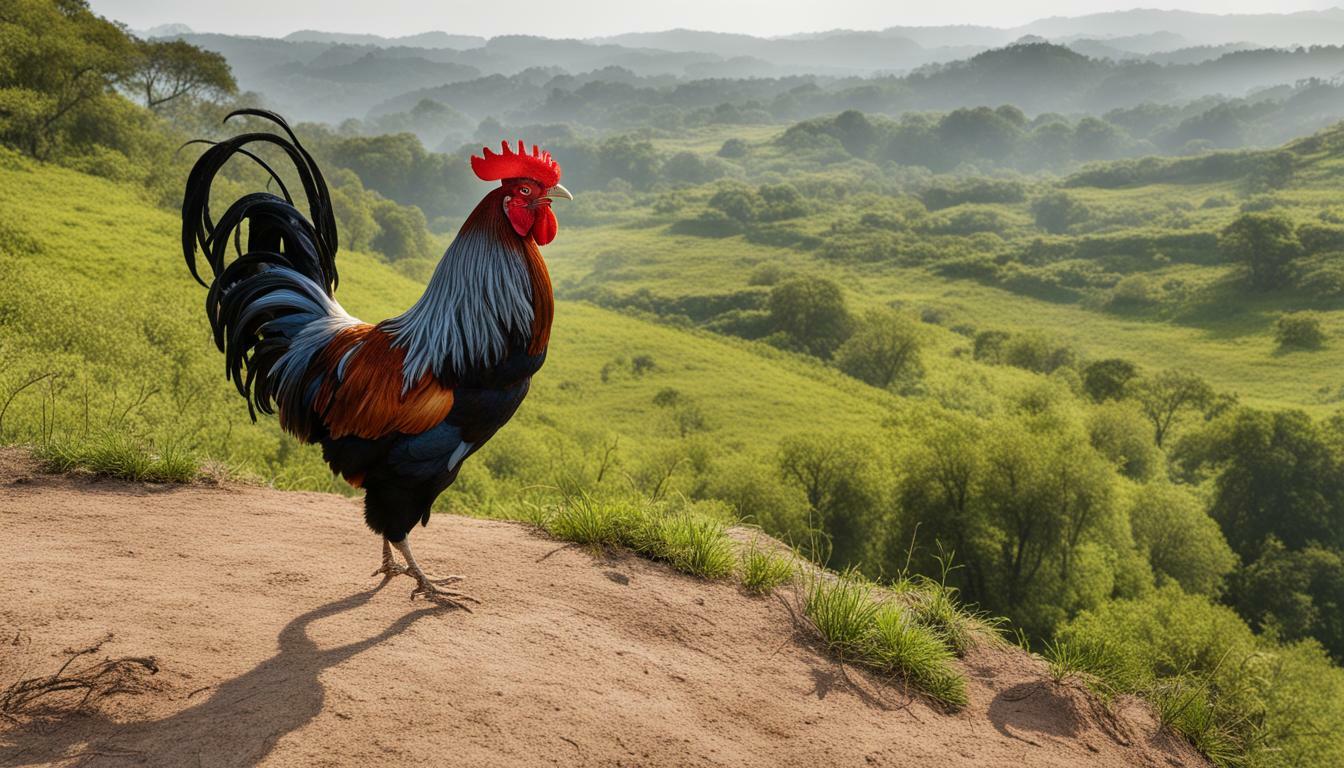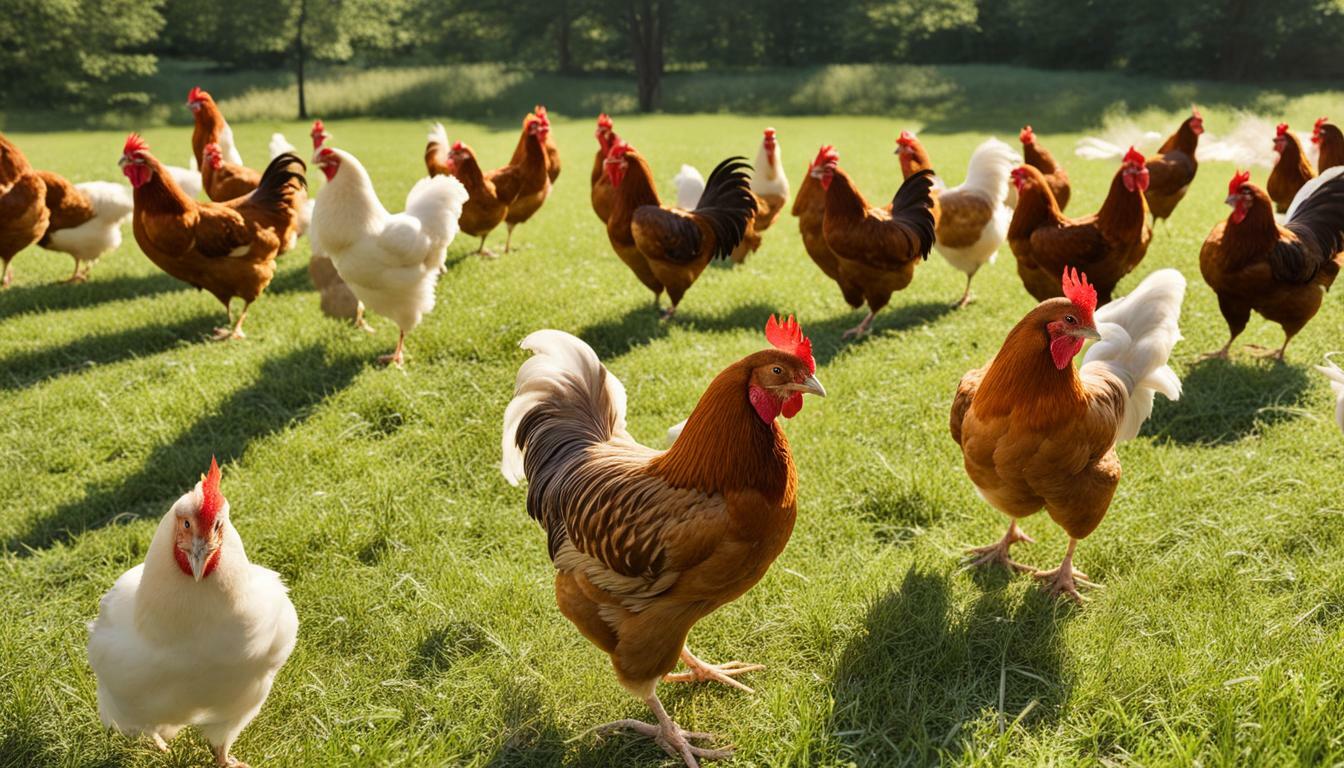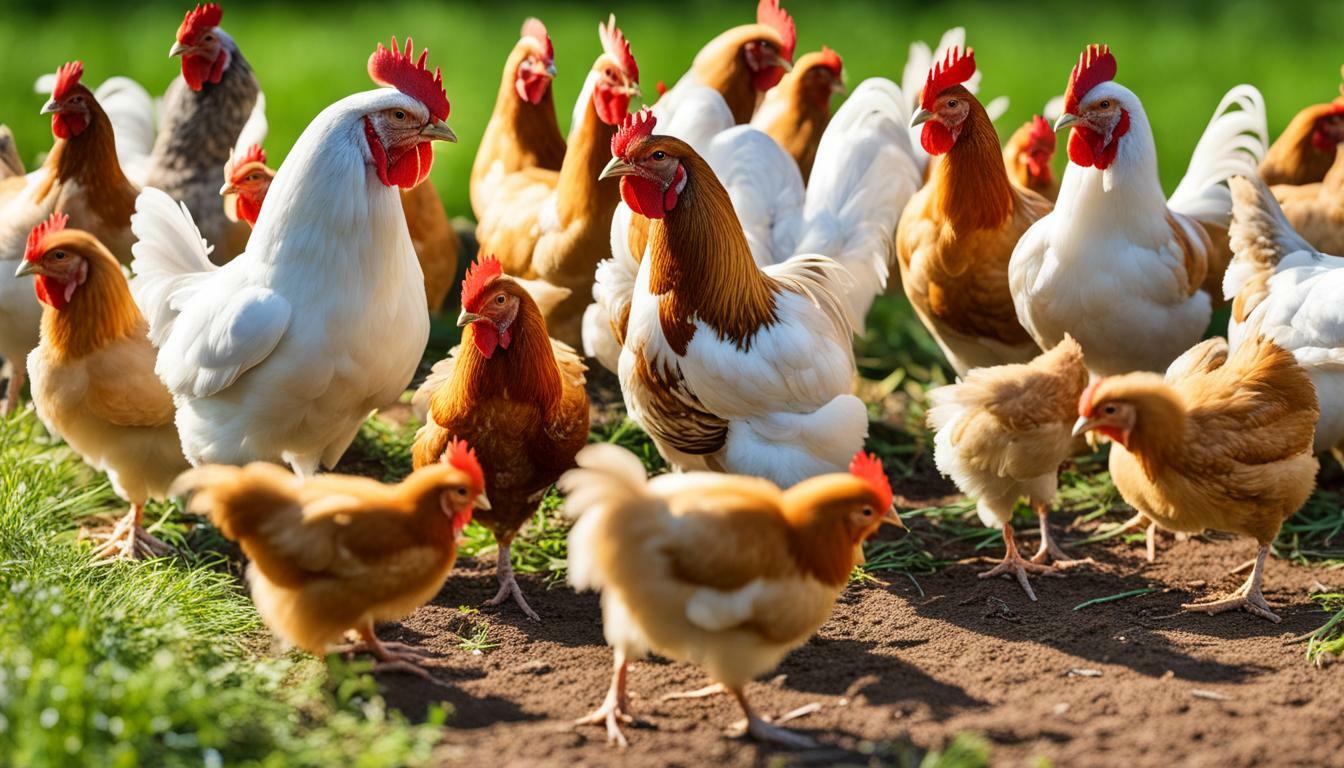Can Chickens Eat Bamboo? Discover the Surprising Answer!
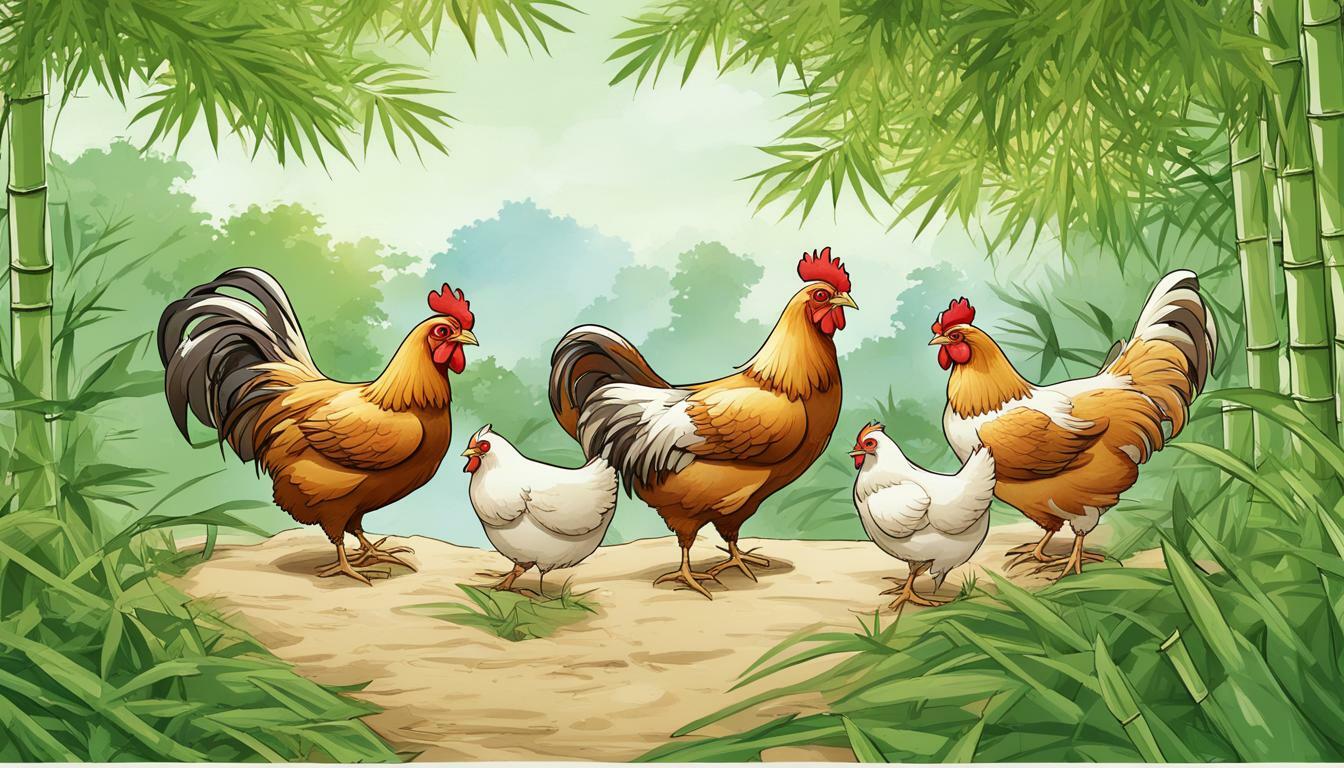
Table of content:
As a chicken owner, you want to make sure your flock is getting the nutrition they need to stay healthy. Bamboo is a popular plant that grows abundantly in many backyards. But can chickens eat bamboo?
The short answer is yes, chickens can eat certain parts of the bamboo plant, in moderation. Bamboo leaves, shoots, and tender new growth contain beneficial nutrients and can be a nutritious treat or supplement. However, some precautions should be taken.
Key Takeaways:
- Bamboo leaves, shoots, and new growth can be fed to chickens in moderation. Avoid feeding too much.
- The fibrous stalks and woody, mature bamboo are difficult for chickens to digest.
- Make sure bamboo has not been treated with chemicals before feeding to chickens.
- Introduce bamboo slowly and watch for signs of indigestion.
- Bamboo provides nutrients like fiber, protein, calcium, and silica. It should not be a replacement for a balanced diet.
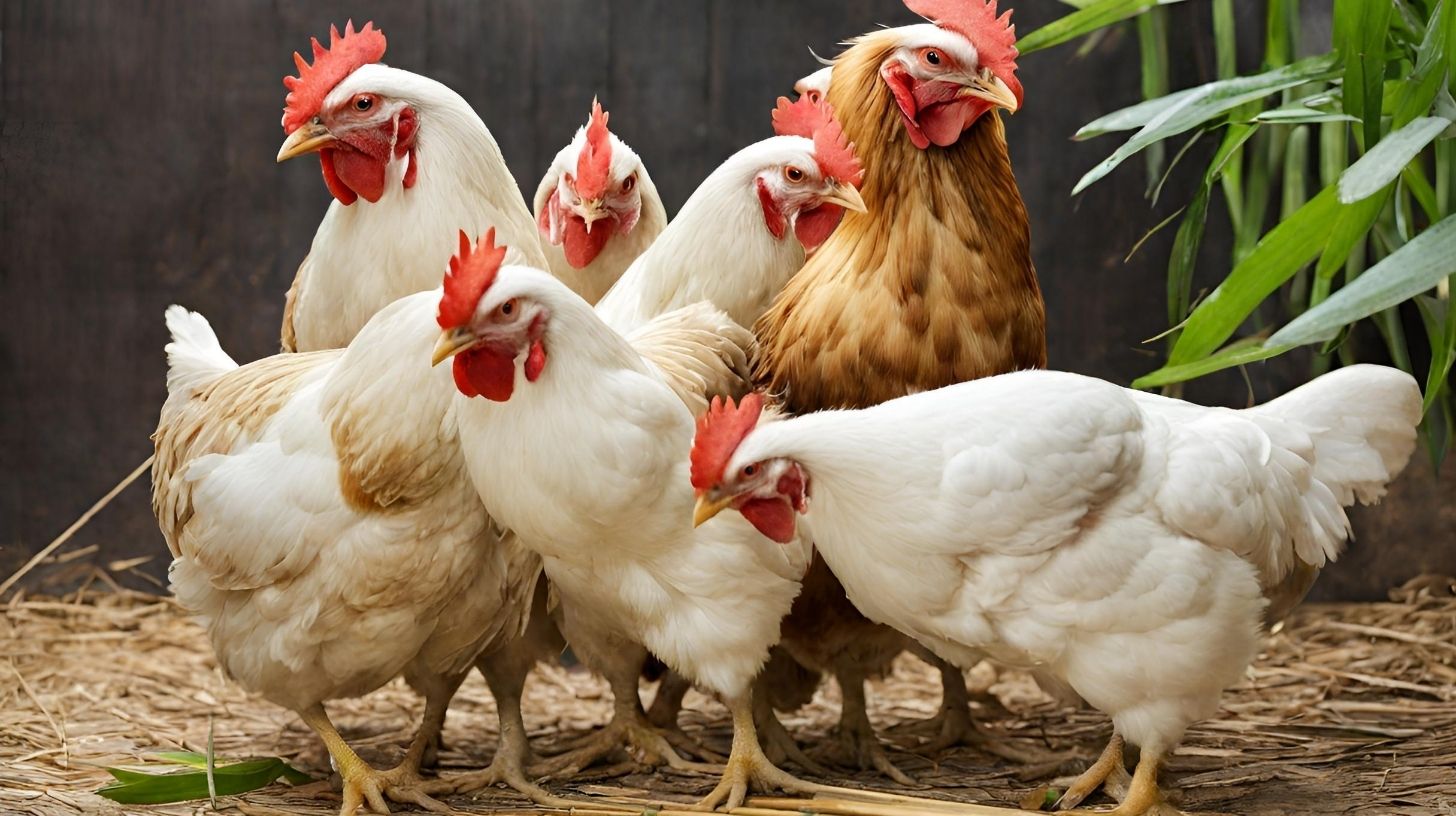 Is Bamboo Toxic to Chickens?
Is Bamboo Toxic to Chickens?
One common concern around feeding bamboo is whether or not bamboo is toxic to chickens. The simple answer is no, bamboo is not poisonous.
In its natural, untreated form, bamboo is not inherently toxic and will not poison chickens. However, there are some important considerations:
- Avoid bamboo treated with pesticides or chemicals. Sometimes bamboo is treated to prevent fungal growth or bug infestations. Make sure the bamboo you feed is completely chemical-free.
- Don’t overdo it. Even though it’s not toxic, feeding too much bamboo can lead to digestive upset and diarrhea. Moderation is key.
- Watch for signs of sickness. Introduce bamboo slowly and monitor your chickens for any decrease in appetite, lethargy, or change in droppings. Discontinue use if any abnormalities occur.
So while bamboo itself is not poisonous to chickens, it’s still important to feed it carefully and responsibly. When sourcing bamboo, stick to fresh, organic, chemical-free varieties.
What Parts of Bamboo Can Chickens Eat?
Chickens can eat certain components of the bamboo plant, while other parts should be avoided. Here’s a breakdown of what’s safe for chickens versus what’s not recommended:
Safe Parts of Bamboo for Chickens
- Shoots and Sprouts: The young, tender shoots and sprouts are the most palatable parts of the bamboo plant for chickens. They are naturally soft and contain vitamin C, vitamin A, and folate.
- Leaves: Bamboo leaves provide nutrients and fiber. Chickens enjoy pecking at and eating the tender green leaves. Avoid wilted or dried leaves.
- New Growth: The soft, pliable, newly growing tips of bamboo culms can be fed to chickens. This part is high in silica, which is beneficial for feathers.
Unsafe Parts of Bamboo for Chickens
- Mature Stems: The tough, fibrous stalks of mature bamboo plants are difficult for chickens to digest. Only young tender stems should be fed.
- Old Leaves: Older, woody bamboo leaves are also hard to digest. Stick to fresh, young leaves.
- Roots: Bamboo roots should not be fed as they contain cyanide compounds that can be toxic in large quantities.
In summary, focus on feeding new growth rather than old growth for optimum nutrition and digestibility. Firm, stringy stalks are unsuitable and can pose a choking hazard.
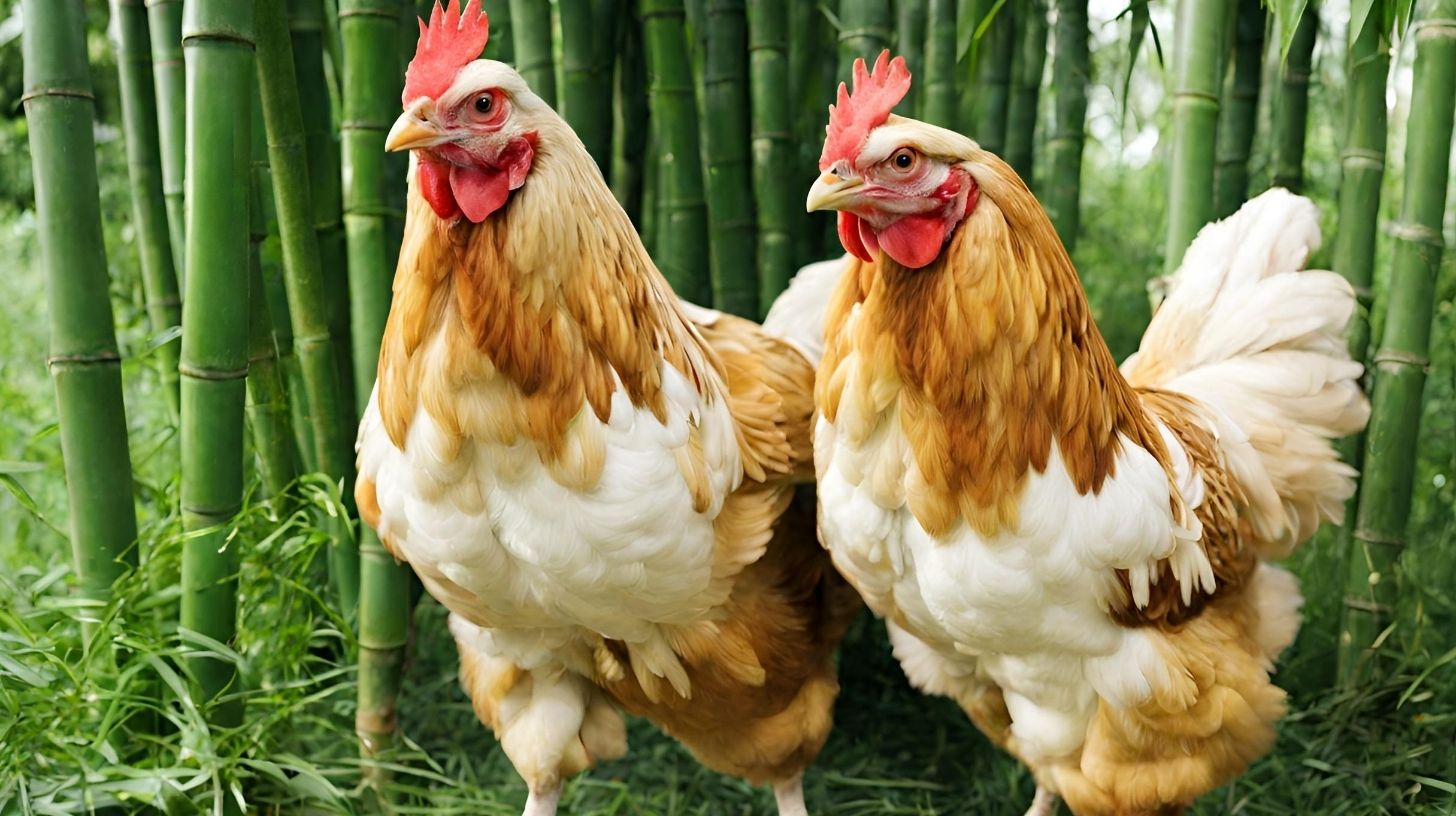 Nutritional Benefits of Feeding Bamboo to Chickens
Nutritional Benefits of Feeding Bamboo to Chickens
In moderation, bamboo can be a great supplemental feed for chickens. Here are some of the key nutrients it provides:
- Fiber: Bamboo leaves and shoots are high in fiber. This aids digestion and gut health.
- Protein: Young shoots contain amino acids that deliver protein for growth and egg production.
- Calcium: Calcium in bamboo helps build strong bones and eggshells.
- Silica: High silica content in bamboo supports feather growth and leads to lustrous plumage.
- Vitamin A & C: These vitamins support overall immune function and contribute to eye and skin health.
While bamboo shouldn’t replace a complete feed, it can add variety and key nutrients. Think of it as a “treat.” Limit bamboo to around 10% of your chickens’ overall diet.
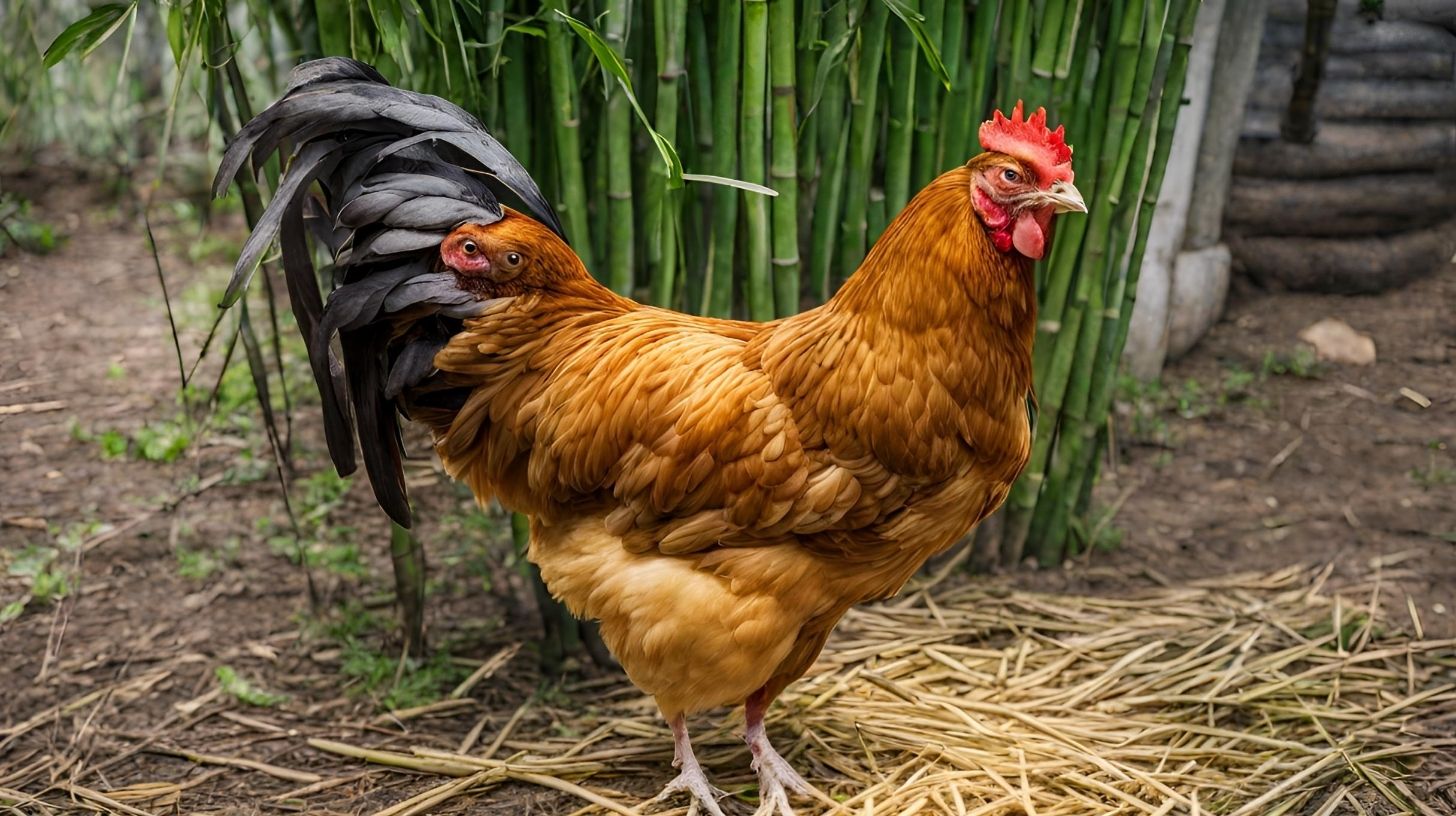 How to Feed Bamboo to Chickens
How to Feed Bamboo to Chickens
When first introducing bamboo, start slowly and look for any signs of digestive upset. Here are some tips:
- Chop leaves and shoots into bite-sized pieces for easier eating.
- Mix a small amount of bamboo into their regular feed at first.
- Feed bamboo in the morning when their crops are empty.
- Provide fresh, clean water to aid digestion.
- Start with young plants less than 3 feet tall. Older plants are too fibrous.
- Allow access for short intervals at first (15-20 minutes) then increase time.
- Watch for decreased appetite or changes in droppings. Stop feeding if these occur.
- Dried bamboo can be rehydrated by soaking in water for extra palatability.
With a slow, gradual introduction, your flock will likely relish bamboo as a supplemental feed. Always monitor their consumption and health, and talk to a vet if concerns arise.
FAQs About Feeding Chickens Bamboo
Can chickens eat bamboo shoots?
Yes, the tender shoots are safe and nutritious for chickens. Start with small quantities and chop into small pieces for easier eating.
What do chickens eat from a bamboo plant?
Chickens can eat the young shoots, leaves, and newly emerging culm tips. Avoid any tough, woody, or fibrous parts.
Can you feed chickens bamboo leaves?
Yes, the young, fresh green leaves are fine for chickens. Chop or tear them into bite-sized portions. Avoid dried out or wilted leaves.
Is bamboo good for chickens?
In moderation, bamboo can provide beneficial nutrition like minerals, vitamins, fiber, and protein. It should supplement a complete feed, not replace it.
Do chickens eat bamboo plants?
If given access, chickens will naturally forage on young bamboo leaves and shoots. But the more fibrous, wooden parts are indigestible.
Conclusion
Bamboo can be a safe, natural treat for backyard chickens when fed properly. Focus on the young shoots and leaves, and avoid overfeeding the woody, fibrous stalks. Introduce bamboo slowly while monitoring for any digestive issues.
When fed in moderation alongside a balanced diet, nutritious bamboo can give your flock’s health a boost. As with any new food, use caution and watch for any adverse reactions. Getting to know what your flock enjoys from your bamboo plants will let you supplement their diet with ease.
Welcome. I’m Adreena Shanum, the proud owner of this website, and I am incredibly passionate about animals, especially poultry. I founded adreenapets.com as a labor of love, stemming from my desire to share my knowledge and experiences with poultry enthusiasts worldwide.


